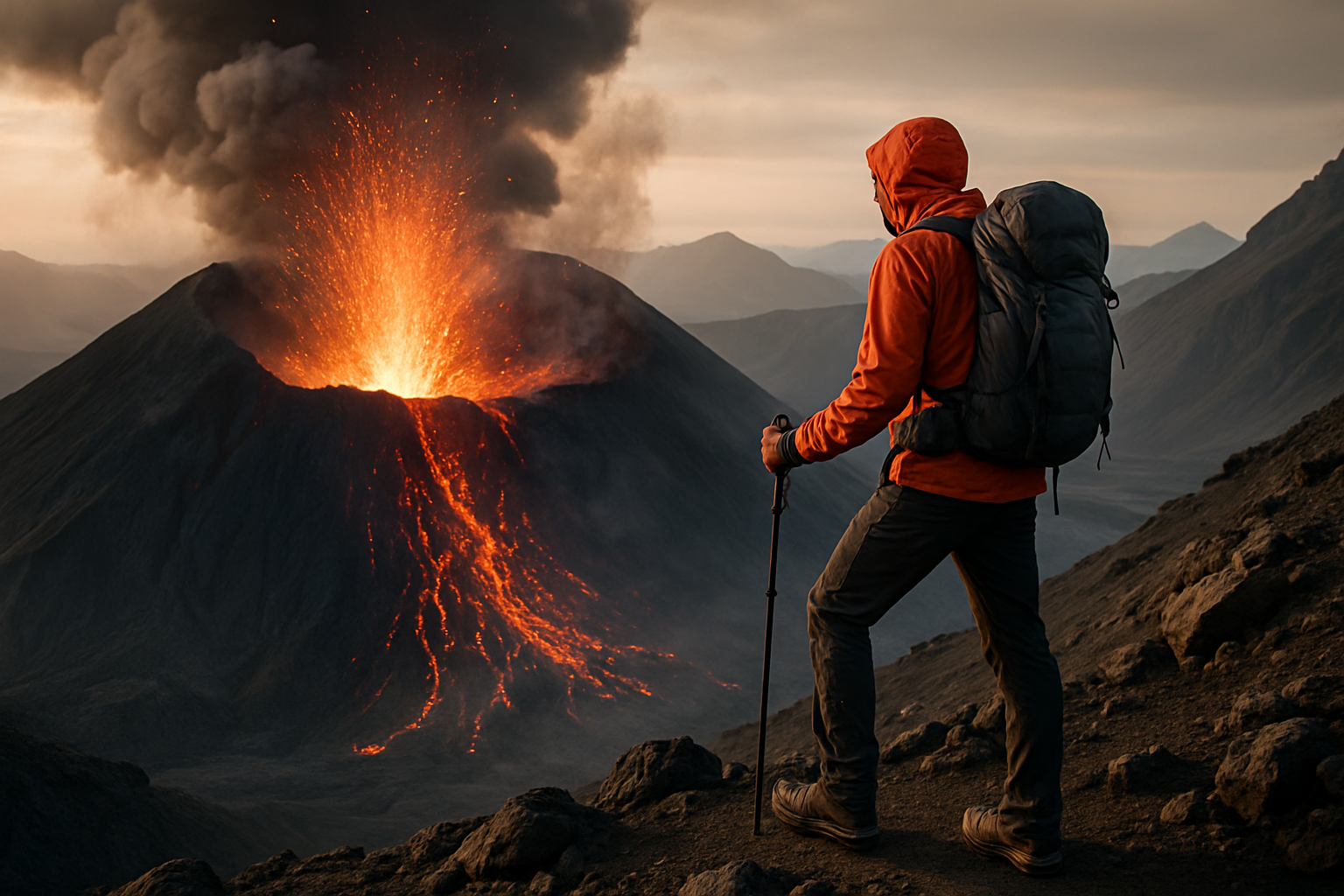Volcano Tourism: Exploring Earth's Fiery Wonders
Lava flows, ash plumes, and thunderous eruptions - the raw power of volcanoes has long captivated human imagination. Now, a growing trend in adventure travel is bringing thrill-seekers face-to-face with these geological marvels. Volcano tourism offers intrepid explorers the chance to witness nature's most explosive forces up close, combining heart-pounding excitement with scientific discovery. From scaling active craters to soaking in geothermal hot springs, volcanic destinations are erupting onto bucket lists worldwide.

Moreover, as travelers increasingly seek authentic and transformative experiences, volcano tourism offers a perfect blend of adventure, education, and natural wonder. It provides an opportunity to witness the Earth’s dynamic processes firsthand, offering insights into geology, ecology, and the planet’s history that simply can’t be replicated elsewhere.
Diverse Volcanic Experiences
Volcano tourism encompasses a wide range of activities catering to different interests and fitness levels. For the hardcore adventurers, there are challenging hikes to the summits of active volcanoes like Mount Etna in Sicily or Pacaya in Guatemala. These expeditions often involve trekking across rugged terrain, navigating through steam vents, and sometimes even witnessing small eruptions or lava flows.
For those seeking a more relaxed experience, many volcanic regions offer scenic helicopter tours, providing breathtaking aerial views of craters and lava fields. In Iceland, visitors can take a dip in geothermal hot springs or explore otherworldly landscapes shaped by volcanic activity. Meanwhile, Hawaii’s Volcanoes National Park offers drive-up viewpoints and well-maintained trails, making volcanic wonders accessible to a broader range of travelers.
Safety Considerations and Responsible Tourism
While the allure of volcanoes is undeniable, it’s crucial to approach volcano tourism with caution and respect for nature’s power. Reputable tour operators work closely with volcanologists and local authorities to ensure visitor safety. They monitor volcanic activity constantly and adjust itineraries as needed. Travelers should always follow guide instructions, stay on designated paths, and be prepared for sudden changes in weather or volcanic conditions.
Responsible volcano tourism also involves minimizing environmental impact. Many volcanic ecosystems are fragile and unique, home to specialized plant and animal species that have adapted to these extreme environments. Visitors should practice Leave No Trace principles, avoiding the temptation to collect volcanic rocks or disturb local flora and fauna.
Educational Value and Scientific Tourism
Beyond the thrill and spectacle, volcano tourism offers significant educational opportunities. Many volcanic sites now feature interactive visitor centers and guided tours led by geologists. These experiences allow travelers to delve into the science behind volcanoes, learning about plate tectonics, magma composition, and the role of volcanoes in shaping our planet’s surface.
Some tour operators even offer citizen science programs, where visitors can participate in real volcanic research. These initiatives not only enhance the travel experience but also contribute valuable data to ongoing scientific studies. From measuring gas emissions to monitoring seismic activity, tourists can play a part in advancing our understanding of these geological wonders.
Cultural Significance and Local Communities
Volcanoes have played a significant role in shaping human cultures throughout history. Many volcanic destinations offer insights into the myths, legends, and traditions surrounding these fiery mountains. In places like Bali or Hawaii, volcanoes are considered sacred, and local guides can provide fascinating perspectives on their cultural importance.
Volcano tourism also has the potential to benefit local communities economically. When managed responsibly, it can create jobs, support local businesses, and provide incentives for conservation. However, it’s essential for travelers to choose operators that work closely with local communities and ensure that tourism benefits are distributed fairly.
Volcanic Ventures: Tips for Aspiring Volcano Tourists
-
Research thoroughly: Choose destinations based on your fitness level and risk tolerance
-
Book with reputable operators: Look for companies with excellent safety records and local expertise
-
Pack appropriately: Sturdy hiking boots, layers for changing temperatures, and protective gear are essential
-
Stay informed: Keep track of volcanic activity reports and follow all safety guidelines
-
Respect local cultures: Many volcanoes hold spiritual significance; be mindful of local customs and beliefs
-
Capture responsibly: While photographs are great souvenirs, prioritize safety and environmental protection over the perfect shot
-
Consider timing: Some volcanoes are more active at night, offering spectacular lava viewing opportunities
As volcano tourism continues to grow, it offers a unique window into the Earth’s fiery heart. By approaching these experiences with respect, caution, and curiosity, travelers can gain a deeper appreciation for our planet’s dynamic nature. Whether you’re watching lava flows under starlit skies or exploring ancient calderas, volcano tourism promises unforgettable adventures that ignite the imagination and leave lasting impressions.





